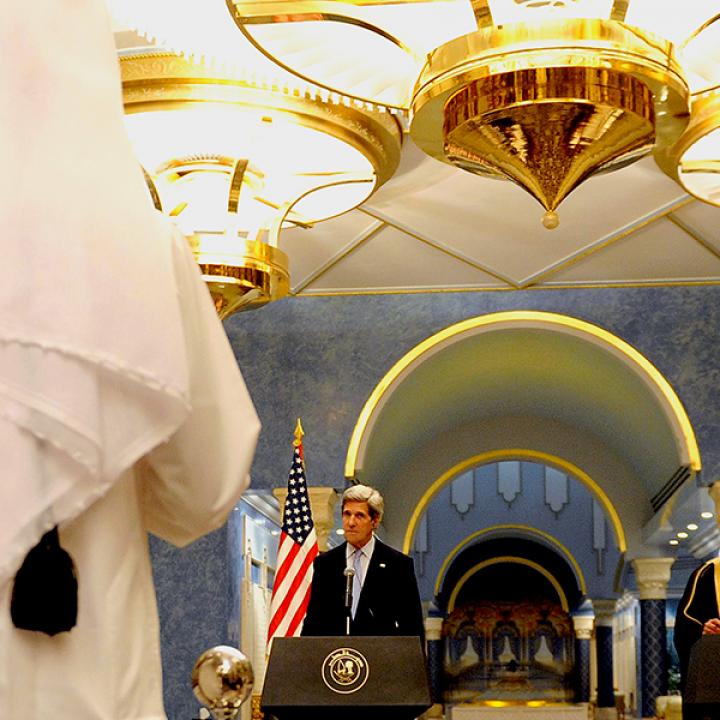
- Policy Analysis
- Articles & Op-Eds
Qatar Is a U.S. Ally. They Also Knowingly Abet Terrorism. What's Going On?

Other Gulf countries joined the fight against terrorism financing once they perceived a real security risk inside their borders, but Qatar's extraordinary financial and political patronage has deterred that threat thus far.
In a televised interview on September 25, CNN's Christiane Amanpour confronted the emir of Qatar about allegations that his country is not a true ally of the United States. Doha hosts America's largest military base in the Middle East, and at the same time allows private fundraising for American adversaries Al Qaeda and ISIS. Qatar has also been the biggest source of funding in recent years for U.S.-designated terrorist group Hamas, a spinoff of Egypt's Muslim Brotherhood. The 34-four-year-old emir replied to Amanpour: "I'm not in a camp against another camp...I have my own way of thinking."
Qatar's basic foreign policy approach is not uncommon among small, vulnerable states. But Doha has pursued a maximalist version, often using its vast natural gas wealth to cultivate and sustain relations. To fully understand how this plays out, you have to take a few central factors into account...
Read the full version of this excerpt on the New Republic website.
New Republic



